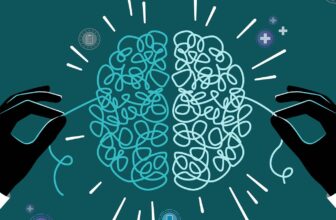Define attitude and discuss the various characteristic features of attitude.
An attitude can be defined as a positive or negative evaluation of people, objects, event, activities, ideas, or just about anything in your environment, but there is debate about precise definitions. Eagly and Chaiken, for example, define an attitude “A psychological tendency that is expressed by evaluating a particular entity with some degree of favor or disfavor.” Though it is sometimes common to define an attitude as affect toward an object, affect (i.e., discrete emotions or overall arousal) is generally understood to be distinct from attitude as a measure of favor ability.
This definition of attitude allows for one’s evaluation of an attitude object to vary from extremely negative to extremely positive, but also admits that people can also be conflicted or ambivalent towards an object meaning that they might at different times express both positive and negative attitude towards the same object.
This has led to some discussion of whether individual can hold multiple attitudes towards the same object. Whether attitudes are explicit (i.e., deliberately formed) versus implicit (i.e., subconscious) has been a topic of considerable research. The definitions, along with the other variations of them, all emphasize four important characteristics of attitudes.
Attitudes predispose:
- Action,
- Imply evaluation,
- Have an affective component,
- Are learned.
Predispositions are considered attitudes because they provide us with a response to varied situations, thus making attitudes consistent and able to predict behaviour in different situations related to that particular attitude.
The ability to make an evaluation with positive or negative valence is considered to be the central attribute of the attitude concept. Attitudes develop from experience and are learned from others or socialization. Since attitudes are learned they have the ability to be taught because they are enduring enough to be stable, but, are temporary enough to be transformed.



